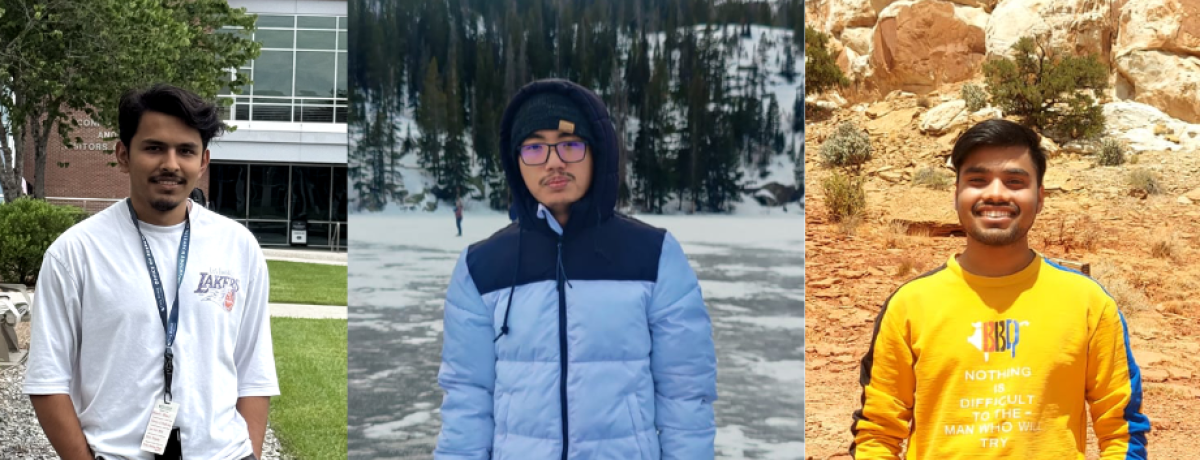
How a First-Time Team Had Their Most Meaningful Four Days of College During MCM/ICM
When we think about student teams competing in COMAP’s Mathematical Contest in Modeling (MCM)® and the Interdisciplinary Contest in Modeling (ICM)®, we often picture seasoned STEM majors or returning participants. But sometimes, the most inspiring stories come from first-timers, like Team 2528357 from the University of Southern Mississippi.
Freshmen and sophomores majoring in physics, math, and computer science, these three students had never entered a math modeling contest before. In fact, there’s no formal program at their university for this kind of work. But they were curious. Motivated. And eager to challenge themselves with something completely new.
Their participation is a testament to what can happen when students take initiative and seek out meaningful learning experiences, even in the absence of a formal program. For this team, joining the contest wasn’t just about testing their skills. It was about exploring new territory, working collaboratively, and pushing their own limits.
“Those were the most meaningful four days we’ve spent in college,” they said. “These kinds of experiences always make us realize how much more there is to learn and how little we know.”
For these students, it wasn’t just about joining a contest. It was about discovering a way to challenge themselves, apply what they’d been learning, and explore a future in mathematical modeling.
The trio, Bimarsh Bhusal, Suramya Angdembay, and Pritesh Thakur, approached the challenge like true collaborators. They planned everything in advance, stayed together in one apartment throughout the contest, and split up tasks strategically for reading theory, cleaning data, and working on models.
And they didn’t stop at a single model. Instead, they patiently and consistently worked on this challenge to test and play around with everything that was feasible. They built and tested everything from simple linear regression to ARIMAX to Bayesian Probabilistic Models to material physics prediction model: Grey Prediction Model, before they landed on Random Forest Regression. They read, implemented, assessed, adjusted, and (most of all) learned.
What stood out wasn’t just their analytical grit, but their mindset.
“It was humbling… it fueled our enthusiasm to learn, explore, and strive to do better,” the team said.
The learning didn’t stop when the contest did. The team was awarded Successful Participant status in the 2025 MCM, an accomplishment they’re proud of, especially as first-time competitors. Since then, they’ve continued studying the concepts they encountered, revisiting their models and exploring new techniques. They’ve already set their sights on the 2026 contest, not just to improve their results, but to keep growing. Because, as they’ve discovered, the experience itself is just as valuable as any award.
Their story is a powerful reminder that modeling contests aren’t just about winning. They’re about learning to collaborate, adapt, and think critically under pressure. And sometimes, all it takes is one open door (a waived fee, a shared apartment, or a well-timed opportunity) to spark something bigger.
These students didn’t just complete the MCM. They discovered what’s possible when you combine curiosity, teamwork, and a little faith in yourself.
Written by
COMAP
The Consortium for Mathematics and Its Applications is an award-winning non-profit organization whose mission is to improve mathematics education for students of all ages. Since 1980, COMAP has worked with teachers, students, and business people to create learning environments where mathematics is used to investigate and model real issues in our world.
